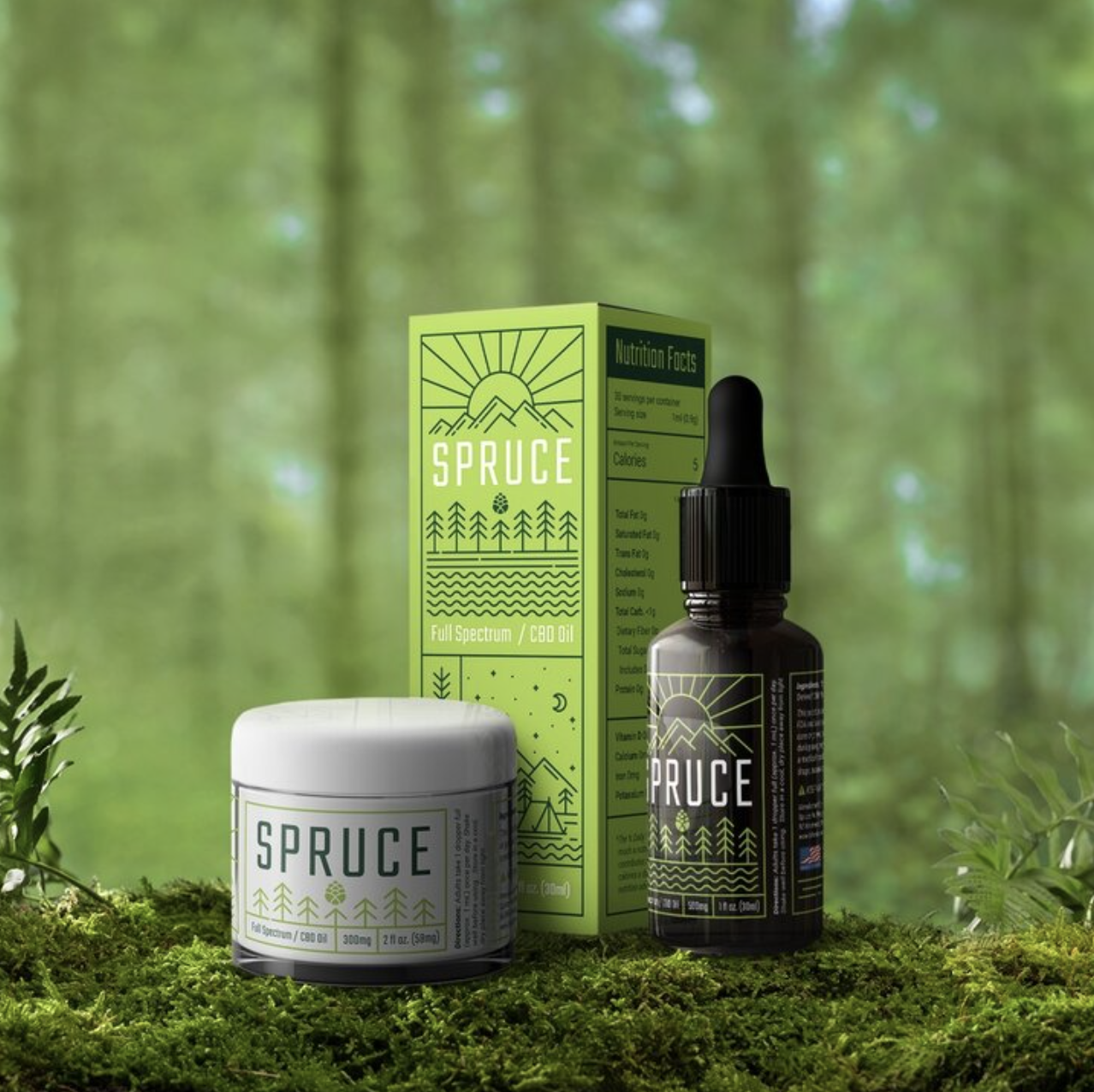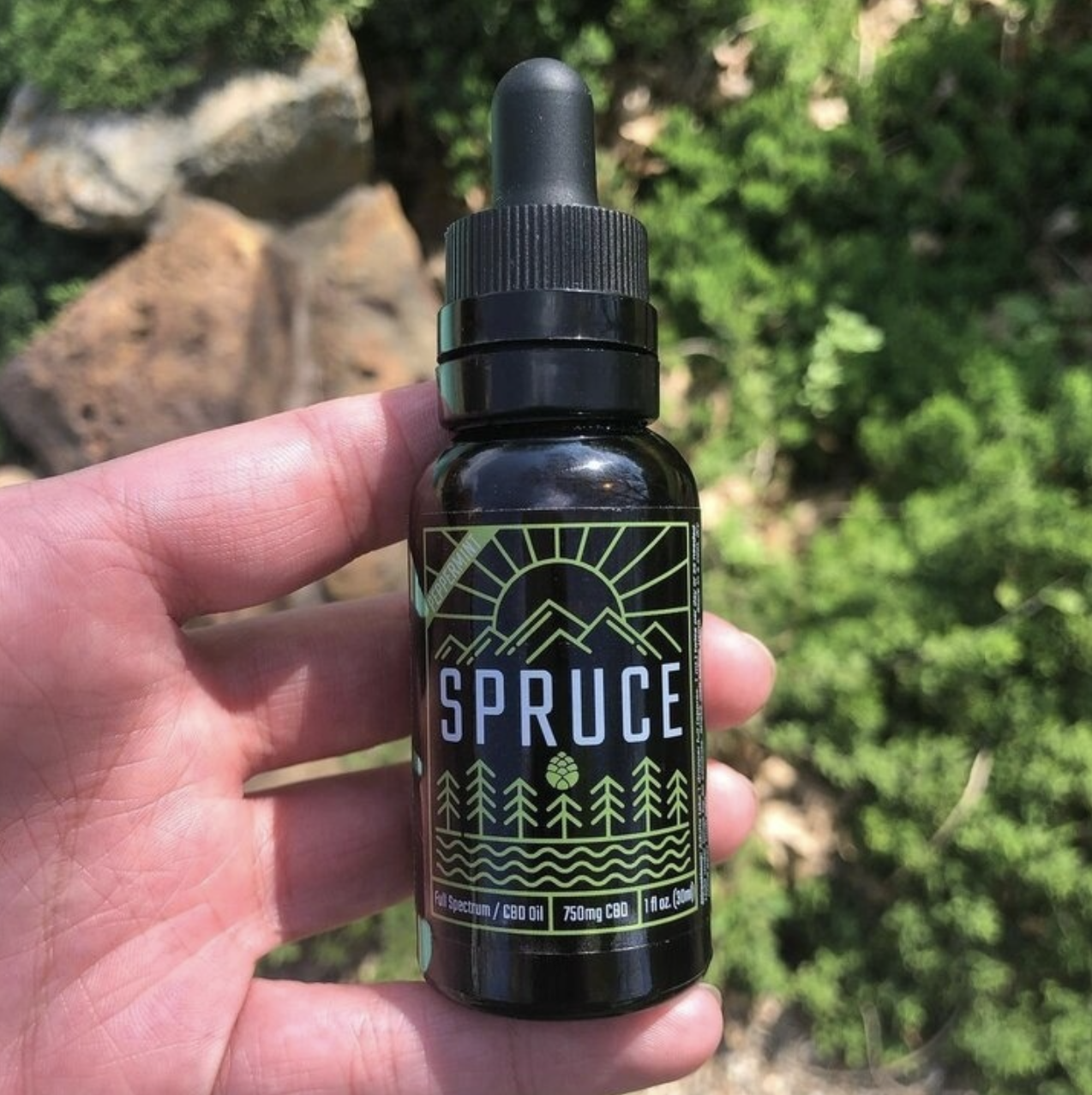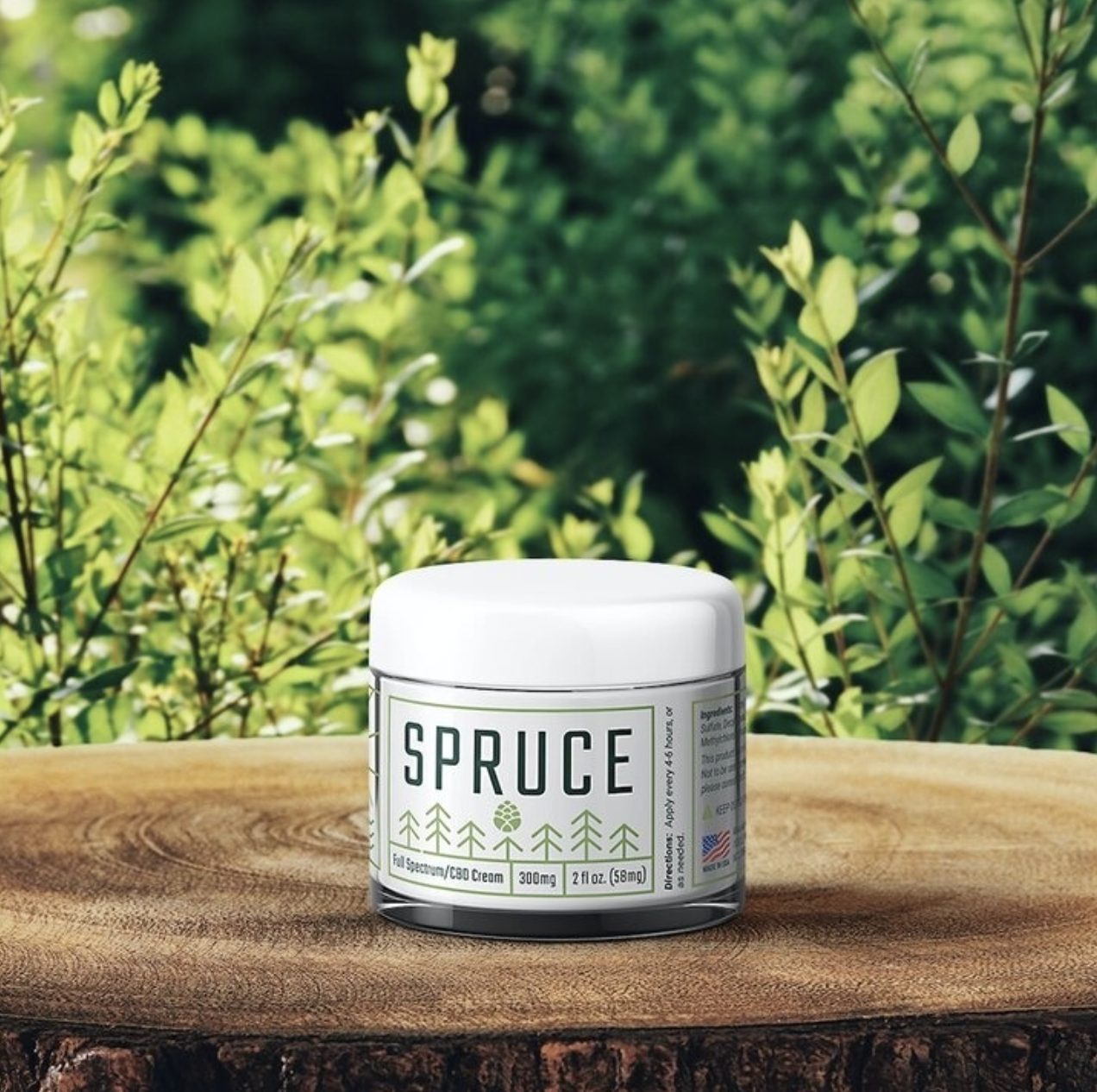CBG vs. CBD: Similarities, Differences, Benefits & Risks

There is a lot of conflicting information regarding CBG vs. CBD, and with research regarding these cannabinoids still ongoing, it can be difficult to figure out which one would benefit you the most. The fact that many CBD oils contain small amounts of CBG and there is a limited number of products containing only CBG can add to the confusion.
The truth is that we still have much to learn about CBG and CBD. However, what we do know is that they both show great potential for treating numerous conditions and alleviating common complaints, such as chronic pain, stress, anxiety, sleep issues, and inflammation.
CBG vs. CBD
There are more than 500 chemical compounds found in the hemp plant (Cannabis sativa), and of these, more than 100 are phytocannabinoids. Two phytocannabinoids, tetrahydrocannabinol (THC) and cannabidiol (CBD), are fairly well known, but lately, cannabigerol (CBG) has been receiving a lot of attention.
THC is the compound responsible for the intoxicating effects associated with marijuana, but CBD and CBG are valued for their health-enhancing properties. While they both evolve from cannabigerolic acid (CBGA) and have similar therapeutic effects, they work differently within the body and produce slightly different results.
Understanding CBG
Cannabigerol is often called “the mother of all cannabinoids” for good reason. Within the hemp plant, CBG begins as cannabigerolic acid (CBGA). As the plant ages, CBGA undergoes non-enzymatic decarboxylation to form CBG, CBD, THC, and other cannabinoids.
The amount of CBG produced is small compared to that of the major cannabinoids, and the amount of CBGA steadily declines as the plant ages and other compounds are formed.
Because of this, CBG is typically sourced from young plants while CBGA levels are relatively high, and it tends to be rather expensive since it occurs only in minimal amounts.
Within the body, cannabigerol binds to the CB2 and the CB1 receptors of the endocannabinoid system, which regulates body functions including pain, inflammation, stress, mood, sleep, appetite, and muscle repair and formation.
Understanding CBD
Cannabidiol is a major cannabinoid produced by hemp plants. Like CBG, it is formed from the non-enzymatic decarboxylation of cannabigerolic acid, but it is produced in greater amounts than CBG.
CBD interacts with the endocannabinoid receptors of your body, but it likely doesn’t bond to them in the same way that CBG does. Although the exact way CBD works isn’t fully understood, research suggests that CBD activates the endocannabinoid system, which helps the body function optimally. It may bind with CB2 receptors as well.
Experts also believe that CBD might interact with vanilloid receptors to manage pain and inflammation, GABA receptors to manage stress and anxiety, and serotonin receptors to manage mood and sleep, and it might be particularly beneficial to those suffering from diseases and conditions caused by endocannabinoid deficiency.
CBD is sold in three basic forms: full-spectrum CBD, broad-spectrum CBD, and CBD isolate. They all contain CBD extract, but they vary significantly in composition and effectiveness.
Full-spectrum CBD contains all of the naturally occurring compounds and cannabinoids of the hemp plant, including trace amounts of THC. Broad-spectrum CBD also contains the full compound profile but lacks THC. CBD isolate is pure CBD without any of the other cannabinoids, flavonoids, and terpenes found in hemp.
How CBG and CBD Are Alike
CBG and CBD are both active cannabinoids produced by hemp plants, and they both are formed from cannabigerolic acid. Neither compound causes intoxicating effects, and they are sourced by similar methods of extraction.
They both work with the body’s endocannabinoid system to restore and maintain balance and improve overall function. Studies thus far suggest that they have similar effects on the body, and both are currently being used to manage pain, stress, anxiety, inflammation, sleep troubles, appetite, and more.
Because CBD and CBG work in similar ways, taking them together can possibly lead to more pronounced results since cannabinoids are known to function synergistically, enhancing the effects of one another.
How CBG and CBD Differ
In addition to having a different molecular structure, CBD and CBG also differ in several other key areas, including harvest times, concentration levels, classification, functions within the body, and the amount of research done thus far.
CBG is typically sourced from young plants before the CBGA has been converted into other compounds. This allows producers to procure the highest concentration levels, although the amount of extracted CBG is still quite low. CBD is usually sourced from mature plants that have optimal levels of CBD and very little CBG and THC.
CBG is considered to be a minor cannabinoid, meaning that it is only present in small amounts within the plant. CBD, along with THC, is regarded as a major cannabinoid because it is produced abundantly by hemp plants. This prevalence discrepancy accounts for the high cost of CBG products and the fact that few products have it as a major ingredient.
Although more research is needed to fully understand cannabinoids and the endocannabinoid system, it is thought that CBG and CBD affect the endocannabinoid system in slightly different ways.
For example, CBG seems to trigger happy, elevating feelings, and CBD is known for its calming effects. Additionally, CBG is believed to stimulate appetite, whereas CBD tends to suppress appetite.
Research surrounding CBG vs. CBD is quite limited. A substantial amount of research has been conducted on CBD and its effects on the body, but CBG is only recently emerging as a potentially powerful health supplement, and studies have only begun to scratch the surface regarding its beneficial properties and long-term effects.
Benefits of CBG
CBG research is currently in the infancy stage, and it will likely be years before we fully understand how CBG works and how it benefits the human body. However, based on preliminary studies, CBG oil shows promise in the following areas:
- Reducing inflammation
- Regulating stress and anxiety levels
- Controlling pain and discomfort
- Easing symptoms of depression
- Stimulating appetite and reducing nausea
- Improving skin conditions
- Lowering cholesterol
- Reducing the eye pressure associated with glaucoma
- Eliminating bacterial infections
- Protecting against neurodegenerative diseases
- Treating neurological disorders such as Parkinson’s and Huntington’s disease
- Managing irritable bowel disease and colitis
- Slowing and halting the development of cancer cells
Benefits of CBD
Other than Epidiolex, the only FDA-approved drug containing CBD, CBD products are unregulated, and until research is complete, we won’t know the exact extent of CBD’s capabilities.
However, studies to date suggest that CBD could help to:
- Manage stress and anxiety levels.
- Promote calmness and aid in relaxation.
- Improve daytime focus and clarity.
- Relieve pain and discomfort.
- Reduce inflammation.
- Ease arthritis pain.
- Promote restful sleep.
- Help with addictions.
- Decrease seizure activity.
- Protect neurological functions.
- Reduce the frequency and severity of migraines.
Potential Risks and Side Effects
Perhaps the most significant risk of using CBG and CBD involves the unknown. Although more studies have been done on CBD than CBG, there is still much to learn about both cannabinoids.
So far, known side effects are infrequent and typically mild. They include dry mouth, fatigue, irritability, lightheadedness caused by low blood pressure, changes in appetite, diarrhea, and upset stomach.
Before trying either CBG or CBD, speak with your doctor. These cannabinoids can interfere with certain medications, and it’s essential that your doctor is aware of any supplements you are taking or plan to take.
Be sure to thoroughly research any CBD or CBG product you are considering. Inferior products might not have accurate labeling in terms of potency and ingredients and can contain additives, such as artificial sweeteners or preservatives, and potential allergens that you should avoid.
How CBG and CBD Are Typically Taken
CBD oils are by far the most popular way to reap the benefits of hemp, but both CBD and CBG are available in various forms, including oils, tinctures, gummies and other edibles, capsules, topicals, and vape pens.
- CBD and CBG oils are typically made with either hemp seed oil or coconut oil and taken sublingually (under the tongue).
- CBD and CBD tinctures have an alcohol base. They are taken orally, but they can taste rather bitter and strong.
- CBD and CBG gummies and other edibles, such as chocolates, lollipops, and flavored tablets, are usually sweet and flavorful to make dosing enjoyable and easy. However, they might not work as quickly as oils, and the effects might not be as drastic.
- Capsules and softgels containing CBD or CBG are also available in various concentrations and make dosing very simple.
- Topical products are applied directly to the skin to target a specific area causing discomfort. They are available in many forms, including creams, lotions, salves, balms, and ointments.
- CBD and CBG vape pens deliver cannabinoids in the form of a vapor that is inhaled. They are typically flavored, and the compounds enter the bloodstream quickly.
Helping You Decide
Spruce wellness products are made with lab-grade full-spectrum CBD with trace amounts of CBG, and each batch is backed by a Certificate of Analysis to guarantee potency and safety.
When it comes to CBG vs. CBD, the decision is clear: trust Spruce for all your CBD and CBG needs!
Frequently Asked Questions
Is CBG more effective than CBD?
CBD is more effective and more potent than CBG because it contains numerous cannabinoids, terpenes, and flavonoids that naturally occur within the hemp plant and work together to provide powerful effects. CBG is just one component of hemp’s compound profile.
Both CBD and CBG are currently used to help fight inflammation, reduce chronic pain, improve sleep, and restore inner balance, and taking a CBD product containing CBG is likely the best route if you wish to reap the benefits of both compounds.
How does CGB make you feel?
CBG oil can help relieve pain and inflammation to make you feel more comfortable. It can also help you feel full of energy, optimistic, and focused during the day. It won’t make you feel high, but because it helps manage stress and discomfort levels, you’ll naturally feel more relaxed.
CBG is similar to CBD in that it promotes homeostasis throughout your body, which helps you feel better overall and function more efficiently.
What is CBG used for?
Despite the lack of research, people are currently using CBG to improve their appetite, fight inflammation, reduce pain, lower daily stress levels, treat anxiety disorders, help with depression, control nausea, battle acne, and promote general wellness.
However, research indicates that CBG can also improve skin conditions, lower cholesterol, fight infections, and treat conditions such as glaucoma, Alzheimer’s disease, Parkinson’s disease, Huntington’s disease, and IBD.
Does CBD or CBG make you sleepy?
Neither CBD nor CBG is considered a sedative, but both cannabinoids, when taken as recommended, can have calming and relaxing effects that make you feel a bit sleepy, especially when taken at night. This is particularly true of CBD, which is often lauded for its sleep-enhancing abilities.
If your goal is to use CBD or CBG to improve the quality and duration of your sleep, try incorporating either one into a relaxing bedtime ritual in which you focus on calming activities, like a warm bath or meditation, and creating an atmosphere conducive to rest, such as soft music playing in a dimly lit room.
Can you take CBD and CBG at the same time?
Based on what is known so far about CBD and CBG, it is considered perfectly safe to take them simultaneously.
In fact, taking CBD and CBG at the same time can actually improve their combined effectiveness because each cannabinoid works slightly differently in the body and produces different results, and when taken together, they complement each other and result in more effective relief than when taken individually.
What are the downsides of CBG?
Severe negative reactions to CBG are rare, but taking CBG can cause you to experience dry mouth, diarrhea, upset stomach, extreme drowsiness, fatigue, and possibly irritability in some instances.
To avoid these side effects, use only high-quality products from reputable manufacturers, and follow the dosing directions. If you are on prescription medications, do not use CBD or CBG without first speaking to your doctor.









